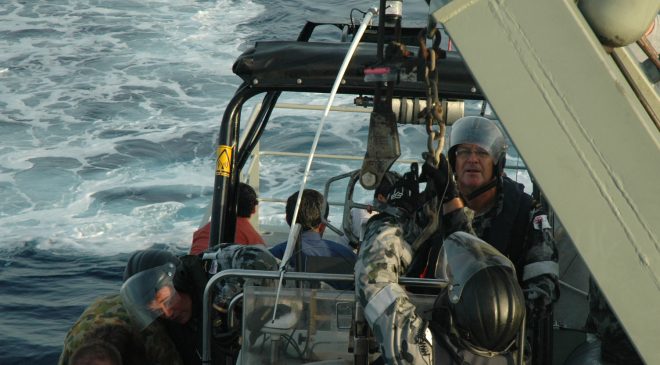
Number of new tech initiatives for ADF.
Canberra-based company DATAPOD (Australia) has been awarded a two-year, AU$20 million contract to provide Defence with portable, containerised data systems which can be rapidly deployed by sea, air or road.
Minister for Defence, Linda Reynolds said, the investment delivers on the Morrison Government’s commitment to build Australia’s sovereign industrial capabilities.
“DATAPOD will build four modular data centres which can house a wide range of Defence Information and Communications Technology equipment,” she said.
“These centres can be scaled for different needs and are interoperable with a range of potential and emerging technologies and platforms. “Our Defence Force needs to be agile and responsive to the evolving threats we face.
“This investment recognises the need to have assets that can be deployed and re-deployed to meet operational needs, without unnecessary delays caused by constructing facilities with a long lead time.”
Minister for Defence Industry Melissa Price praised DATAPOD for its contribution to Defence capability.
“DATAPOD is an Australian-owned company that has an outstanding track record supporting Defence with its state-of-the-art systems,” Minister Price said.
“It has previously supplied data centres integrated into Defence’s existing and planned operational platforms and Information and Communications Technology equipment.
“This investment by the Morrison Government provides job security for DATAPOD’s core workforce of 27 people, and a further 80 manufacturing sub‑contactors across Australia.”
The investment will also provide for the continuation of DATAPOD’s successful Science, Technology, Engineering and Mathematics training program.
The Australian Government also plans to increase funding for Defence innovation, industry grants, skilling and micro credentialing and cyber training for Defence industry, as part of a AU$IB investment package, to boost ADF economic recovery from COVID-19.
Minister Reynolds said supporting Australian defence industry is crucial to the economy’s recovery.
“Already we’ve fast-tracked a range of capability, infrastructure, skilling, and workforce initiatives over the next two years. This includes rolling out a number of Defence estate works tenders as part of Defence’s economic stimulus initiative package, that will run over the 2020-21 and 2021-22 financial years,” she said.
“Over AU$11 billion has already been provided in early payment for invoices and work to improve or sustain industry capacity for the delivery of critical supplies.”
“We’re getting on with the job of delivering critical capability outcomes to Army, Air Force and Navy, as well as continuing to support our personnel, including ADF Reserve members.”
Defence will retain a great level of agility to phase and adjust expenditure of the initiatives to ensure they are affordable and remain suitable over the next two years.
The ADF will also invest in autonomous technologies to mine clearance capability in operations close to shore through a new five-year, AU$15 million research and development project.
The project is part of a new partnership between Defence, Australia’s Trusted Autonomous Systems Defence Cooperative Research Centre (TAS DCRC) and Thales Australia.
Researchers will design, develop, test, and evaluate various teams of micro Autonomous Underwater Vehicle swarms and Autonomous Surface Vessels, to develop new systems for underwater mine detection and clearance.
Minister Reynolds said the project will harness Australian research and innovation capabilities in autonomous systems technologies.
“As announced in the 2020 Force Structure Plan, developing new systems for underwater mine detection and clearance are vital to protecting Australia’s maritime environment and advancing our interests,” she said.
“Key technologies such as artificial intelligence, big data, connectivity and cyber security will be vital in developing the capability to autonomously undertake environmental data collection and mine countermeasures missions.
Research partners include Flinders University, the University of Sydney, the University of Technology Sydney and Western Sydney University who will design, develop, test and evaluate various platforms.




